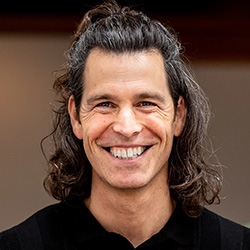

Search Results: empathy
-
Ask the Trainer: “I would like some suggestions on how to interact with a member of the practice group I started. This individual speaks and acts in a manner I interpret as angry and controlling.”
-
What's really going on underneath the surface when we bring or encounter blame, judgements, pain -- and thereby the inability to empathize, be present, attuned, or responsive? Why does this happen even if one or more people in a relationship dynamic is working hard at bringing in an NVC response? This article addresses these and more questions from the perspective of how our brains are affected in our relationships.
-
- Discover how mediation is a fundamental social skill that everyone can learn
- Gain the skills to stay centered when a conflict becomes heated
- Learn how to lead a dialogue toward sustainable agreements
- Help facilitate connection and creativity to discover and meet everyone’s needs
-
It can seem like anger protects you. But it's your ability to name your needs, honor your range of feelings, and act on your needs that keeps you healthy and safe. When you remain present for an emotion and allow it to flow, it'll last just over a minute and dissolve, making room for the next layer of experience. Practice noticing any anger you have, without resistance. Set up self-empathy or space be heard empathically.
-
- Look at your old patterns with warmth – while also opening yourself up to change.
- Increase your self-compassion – and gain a solid ground to stand on.
- Become intimate with your own survival strategies – and those of the people you love.
- Support healing and connecting in your long-term relationships – even when it seems there is no resolution in sight!
-
In a workshop, a hesitant white neurodivergent man faced a triggering reaction from a Global Majority transgender man. Uncovering their backgrounds, the facilitator addressed family dynamics and exclusion. A repair exercise fostered empathy, challenging assumptions and emphasizing the importance of equitable facilitation for a richer group experience.
-
Recently, I have been pondering anger, how I express it and the jackal story I tell myself about it. Marshall Rosenberg taught that anger is a natural emotion that is based on a judgment of someone else or myself. I agree with this, so I have been doing some “enemy images” and self-empathy work (and praying for those who are most likely to be the recipients of my anger). My goal was to clear my judgments and take responsibility for my “stuff.” It has helped a lot, and yet I still feel a general anger in me that is not directly related to anyone or any specific situation.
-
Trainer Tip: With empathy, ponder one area of your life that you are unhappy with today. Consider whether you can take action to change the experience and meet your needs.
-
Some people in the NVC community consider the words "privilege" and "power" triggering and/or evaluative. From this perspective, how can the concepts of "privilege" and "power" be considered part of the NVC teaching? This writing piece examines the power and privilege debate. It also discusses what the author sees as Marshall Rosenberg and Gandhi's stance on the subject...
-
- Learn, practice, and integrate the basic components of NVC
- Understand how to use observations, feelings, needs, and requests
- Grow your communication skills and strengthen your relationships
- Discover how to express yourself honestly and authentically!
-
In this practice group class, certified CNVC trainers Jim and Jori Manske are facilitating the exploration of the topic of Mourning using the three modes of NVC: self-empathy, honesty and empathic presence. You'll learn how to accept a loss, let yourself feel the sadness and all the emotions, and allow yourself to grieve.
-
- Increase your sense of connection and compassion, even in the heat of conflict
- Deepen your access to needs consciousness and the powerful energy of gratitude
- Learn how to make powerful requests that support the flow of connection
- Expand your self-empathy skills to help you shift away from reactivity
-
Trainer tip: Why do NVC practitioners sometimes use the jackal as a metaphor in the NVC world? What can it teach us? Read on for more.
-
Yoram Mosenzon shares that the role of a mediator is often misconceived as solving conflicts, which can create stress and exacerbate the conflict. Instead, the true essence of mediation is about remaining untriggered, understanding the pain of the conflicting parties, and facilitating communication.
-
How can we express ourselves in a way that supports a natural flow of connection while maintaining a focus on NVC consciousness? This handout from CNVC Certified Trainer, Miki Kashtan, offers seven options that support NVC enthusiasts in evolving from classical to colloquial NVC language.
-
Less than 2 weeks ago from the time I’m writing this letter, Hamas militants crossed from Gaza into Israel and killed more than 1,300 people, most of them civilians. Israel then retaliated and killed over 3,000 Gazans, most of them civilians. The death rate continues to increase every day.
-
-
This chart helps translate words that imply blame into true feelings and unmet needs.
-
- Move beyond anger, blame and judgment…
- Make sense of the baffling or offensive people in your life…
- Deepen your compassion for yourself and others… and
- Transform your old thought and speaking patterns into new ones that inspire harmony and fun!
-
- Learn how to use empathy to dissolve conflict
- Deepen your NVC skills to help let go of judgments
- Explore approaches for asking for what you want
- Listen to the conflict within yourself
Quick Links

Stay in Touch!
We value your privacy, won't share your email address and you can easily unsubscribe any time.


















